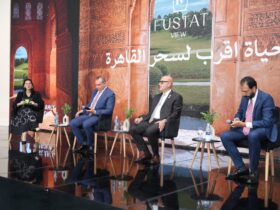Dubai – Masaader News
Many Palestinians in East Jerusalem are subject to a coercive environment with the risk of forcible transfer due to Israeli policies such as home demolitions, forced evictions and revocation of residency status.
As is the case in Area C, a restrictive and discriminatory planning regime makes it virtually impossible for Palestinians to obtain the requisite Israeli building permits: only 13 per cent of East Jerusalem is zoned for Palestinian construction and much of this is already built-up. Palestinians who build without permits face the risk of home demolition and other penalties, including costly fines, the payment of which does not exempt the owner from the requirement to obtain a building permit.
At least a third of all Palestinian homes in East Jerusalem lack an Israeli-issued building permit, potentially placing over 100,000 residents at risk of displacement.
In 2017, the Israeli authorities demolished 142 structures in East Jerusalem for lack of a building permit. This is the second largest number of demolitions since 2000, although lower than 2016 when 190 demolitions were recorded. This year’s demolitions resulted in the displacement of 233 people, including 133 children, and otherwise affected another 631 people.
The communities most heavily affected were Jabal Mukabbir, Beit Hanina, al Isawiya and Silwan which, combined, accounted for 72 per cent of demolition incidents and almost two-thirds of all structures demolished this year. Overall, East Jerusalem accounted for a third of all demolitions (142 out of 423) and more than a third of all people displaced (233 out of 664) in the West Bank in 2017. Around 23 per cent of the structures demolished in East Jerusalem were inhabited homes, while agricultural or livelihood-related structures accounted for some 35 per cent of all demolitions.











